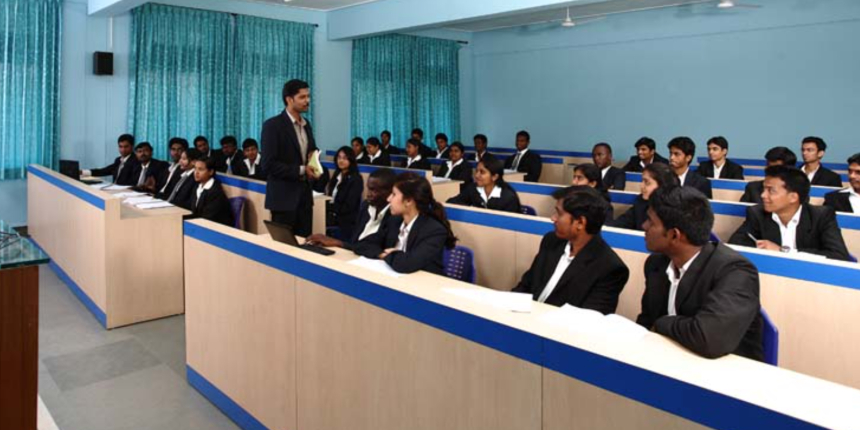UGC paves way for university-industry partnerships for research, paid internships, funds
R. Radhika | July 15, 2023 | 10:34 AM IST | 2 mins read
New UGC guidelines recommend forming 'Industry Relations Cells' to streamline collaborations between university faculty and industry groups.

NEW DELHI: To encourage research through industry partnerships in universities, the University Grants Commission (UGC) has drafted guidelines on sustainable and vibrant university-industry linkage for the institutions.
The draft guidelines on Sustainable and Vibrant University-Industry Linkage System for Indian Universities recommend creation of Industry Relation Cell or IRC at the universities and University Relation Cell at companies for collaborations.
The main objective of the IRC, as per the guidelines, is to enable collaborative project creation between a university faculty group and an industry group. Its responsibility will be to identify research topics, including topics relevant to the local area, identify potential research problems for industry and the university, explore funding sources for the research among others.
It also suggests creating a “cluster of universities and industries” enabled by technology at state level led by institutions of state or central government in each region.“ Each cluster may create a technology centric mechanism to capture the local problems and then assign the same as projects to the students based on the infrastructural cum human expertise available at the host institute of a student,” the ugc guidelines state.
To facilitate this, the guidelines encourage joint development of new technologies in research labs of the universities or educational institutions to benefit technology transfer.
The guidelines further facilitate roping in professors of practice to facilitate collaboration between industry partners at the universities.
Also Read| ‘Campus placements may reduce but internship stipends, salaries will rise’: TeamLease VP
Endowment, degrees by industry partners
The industry, as per the guidelines, can provide endowments to create advanced facilities and vocational training centres as per the requirement of the industry or for the cause of education.
It allows industry partners to help university students to use “sophisticated and costly equipment” available in industry and open access of university resources for industry partners for testing and certification.
According to the draft, industries can also establish industry chairs in universities and support scholarship schemes to attract meritorious young researchers to university.
To make students job-ready, the guidelines recommend offering collaborative degree programmes tailored for industry personnel or with emphasis on practice. Project work under this programme can be executed under joint guidance of the teachers and experts from industry on generic or industry problems, the guidelines states.
Internship and apprenticeship
Apart from research collaborations, the draft guidelines also bat for internship and apprenticeship opportunities. University can introduce internship or apprenticeship irrespective of the field including Arts, Science and Engineering as per the UGC Curriculum and Credit framework for programmes. The internship related credits will be awarded based on the credit framework.
Universities will be free to decide the number of internships and types of internships with the approval of statutory authorities. A faculty member will be assigned to handle and coordinate the internships related to the academic programme.
The guidelines further encourage firms to offer paid internships to students and put in efforts in making the internships sustainable. To safeguard students’ interest, the guidelines also have provision for companies to ensure accident insurance protection for the participants.
Follow us for the latest education news on colleges and universities, admission, courses, exams, research, education policies, study abroad and more..
To get in touch, write to us at news@careers360.com.